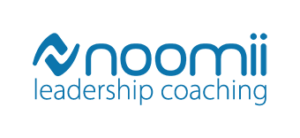The Essential Guide to Small Business Coaching Services 2025
Small businesses in 2025 are seeking expert guidance more than ever, driven by tougher competition and the fast pace of digital change.
Owners and managers face mounting challenges, from evolving technology to shifting customer expectations. Specialized coaching now plays a crucial role in accelerating growth, building strong leadership, and solving operational roadblocks.
This guide explores small business coaching services, offering actionable steps for business owners ready to thrive. You’ll discover what coaching is, its benefits, types of services, how to choose the right coach, steps to start, and emerging trends.
Understanding Small Business Coaching Services
Small business coaching services have become a cornerstone for growth-minded entrepreneurs in 2025. These services empower owners and managers to overcome challenges, clarify goals, and accelerate results. As the business landscape grows more competitive, understanding what small business coaching services truly offer is essential for any small business aiming for sustainable success.

Defining Small Business Coaching
Small business coaching services are professional partnerships focused on helping business owners and managers achieve their goals through structured guidance. Unlike consulting, where experts provide direct solutions, or mentoring, which relies on experience sharing, coaching involves empowering clients to find their own answers.
A business coach acts as a sounding board, accountability partner, and strategic guide. Common coaching scenarios include navigating growth plateaus, improving team performance, or preparing for market expansion. According to the International Coaching Federation, 70% of small businesses report improved performance after engaging coaching services.
In 2025, the rise of virtual and hybrid coaching models makes small business coaching services more accessible than ever. Owners can connect with expert coaches regardless of location, creating flexible partnerships tailored to modern business needs.
Core Benefits of Business Coaching for Small Businesses
The impact of small business coaching services is measurable and far-reaching. One of the primary benefits is enhanced goal setting and accountability, which drives execution and ensures consistent progress. Business owners report that coaching sharpens decision-making skills and strengthens leadership capabilities.
Financially, small business coaching services can directly influence profitability and operational efficiency. For example, a local retail business doubled its sales after just six months of targeted coaching, focusing on sales strategy and team alignment. Research from SCORE reveals that businesses receiving coaching experience an average revenue growth of 20 percent.
Beyond numbers, coaching fosters a culture of continuous improvement. Owners gain fresh perspectives, spot blind spots, and develop actionable plans that translate into real results. The right coach helps turn ambition into achievement, making small business coaching services an investment with lasting returns.
Types of Coaching Services Available
Small business coaching services come in many forms, allowing owners to choose what best fits their needs. One-on-one coaching offers personalized attention, while group coaching creates peer learning environments. Each approach has unique advantages depending on the business stage and goals.
Niche coaching is increasingly popular. Businesses can find experts in marketing, sales, leadership, finance, or operations. Industry-specific coaches understand unique challenges, while generalist coaches offer broader strategies. Service delivery options include in-person, virtual, or hybrid models, ensuring flexibility for busy owners.
For example, tech startups often leverage remote coaching for rapid scaling and team development. Coaching relationships can be ongoing for sustained growth or project-based for targeted improvements. Many providers offer customizable packages, blending assessments, workshops, and follow-up sessions to address unique business challenges.
To explore more about the range of coaching formats and the latest trends, visit Business Coaching Insights.
Finally, ongoing accountability is crucial for results.
When and Why Small Businesses Need Coaching
Small businesses have never faced a more dynamic or demanding environment. The pressure to adapt, innovate, and outperform rivals is relentless. In this landscape, small business coaching services have become a strategic advantage, helping owners and teams stay ahead of the curve.

Common Challenges Solved by Coaching
Many small businesses hit plateaus that seem insurmountable. Stagnant growth, declining sales, or market changes can leave even experienced owners feeling stuck. Small business coaching services offer a structured path to break through these barriers.
Typical challenges include adapting to digital transformation, overcoming team dysfunction, and restoring healthy communication. For instance, a restaurant owner struggling with disengaged staff may use coaching to rebuild team culture and boost morale. According to the SBA, 85 percent of small business owners identify “lack of clarity” as a leading obstacle to progress.
Coaching also addresses operational blind spots and helps leaders prioritize. The right coach can help businesses navigate industry shifts, regulatory changes, and customer expectations. Data shows that businesses investing in coaching experience a strong return, with business coaching ROI statistics revealing measurable improvements in performance and profitability.
Signs Your Business Could Benefit from Coaching
How do you know if your business needs support? There are clear signals that indicate when small business coaching services could make a difference.
- Consistent underperformance or missed targets
- High employee turnover or disengagement
- Difficulty adapting to new technologies or scaling operations
- Owner fatigue, burnout, or decision paralysis
Consider a family business grappling with succession planning. If internal conflicts create tension and uncertainty, a coach can guide the transition, clarify roles, and foster unity. Recognizing these signs early is key to preventing bigger problems down the line.
Strategic Advantages of Early Coaching Intervention
Proactive engagement with small business coaching services delivers a decisive edge. Rather than waiting for crises, forward-thinking owners use coaching to anticipate and overcome obstacles.
Early coaching builds a foundation for sustainable growth. Businesses can streamline operations, align teams, and implement new technologies with confidence. For example, an e-commerce startup that works with a coach before scaling can optimize systems, avoiding costly missteps during rapid growth.
Studies show early adopters of coaching are 30 percent more likely to survive beyond five years. This proactive approach enables faster adaptation to trends and market shifts, positioning businesses for long-term success.
To maintain momentum and accountability, many leaders establish ongoing support networks.
How to Choose the Right Small Business Coach in 2025
Selecting the right coach is a pivotal step for any business aiming to maximize the impact of small business coaching services. With the coaching industry evolving rapidly in 2025, the process requires careful assessment and a strategic approach. Let us break down the essential steps and factors you must consider to make a confident, informed choice.

Key Qualities to Look For in a Business Coach
The foundation of effective small business coaching services lies in the coach’s qualifications and compatibility. Start by verifying credentials from respected bodies like ICF or EMCC. Certified coaches bring proven methodologies and ethical guidelines.
Industry experience is equally vital. A coach who understands your sector’s nuances will anticipate challenges and recommend practical solutions. Assess their track record—request measurable results from past clients.
Compatibility is often underestimated. The best small business coaching services align with your company culture and leadership style. For example, compare a certified professional with a self-taught advisor. The former typically offers structured programs, while the latter may rely on anecdotal experience. In both cases, ensure the coach’s approach resonates with your values and business vision.
| Criteria | Certified Coach | Self-Taught Advisor |
|---|---|---|
| Credentials | ICF, EMCC | None or informal |
| Industry Experience | Verified | Varies |
| Methodology | Structured | Flexible |
| Measurable Results | Documented | Anecdotal |
Questions to Ask Before Hiring a Coach
Before engaging small business coaching services, prepare a set of direct questions. This ensures transparency and helps you gauge the coach’s suitability.
- What is your coaching methodology and process?
- Can you share client success stories or references?
- How do you measure outcomes and track progress?
- What is your availability for sessions and communication?
- How do you tailor your approach to each business?
These questions reveal not just expertise, but also the coach’s adaptability and commitment to your success. Use trial sessions or discovery calls to observe their style in action. Remember, a great coach welcomes scrutiny and provides clear, thoughtful answers.
Evaluating Coaching Programs and Packages
Small business coaching services come in various formats, so it is crucial to assess what each program offers. Compare hourly rates, retainers, and package-based options. The best packages outline specific deliverables, such as assessments, workshops, and follow-up sessions.
Transparency is key. Look for a clear breakdown of services, pricing, and expected outcomes. For instance, two popular packages for service businesses may differ in scope—one might include team workshops, while another focuses on one-on-one strategy sessions. A helpful resource for understanding the range of Coaching Solutions for Organizations can assist you in matching your needs with the right program.
Red Flags and Mistakes to Avoid
While small business coaching services can deliver transformative results, choosing the wrong coach can lead to disappointment. Watch for these warning signs:
- Unclear credentials or lack of certification
- Overpromising results or guaranteeing overnight success
- Poor communication or vague expectations
A business owner’s negative experience with an unvetted coach often stems from skipping due diligence. Insist on references and verify claims. Avoid anyone who seems evasive about their process or background.
Noomii Corporate Leadership Program: A Scalable Solution for Growing Businesses
For growing organizations, Noomii’s Corporate Leadership Program offers a tailored coach-matching process and evidence-based coaching. Small business coaching services through Noomii connect you with a global network of specialists, supporting leadership and operational goals.
The measurable impact of Noomii’s approach includes improved team performance, better decision-making, and accelerated organizational growth.
Step-by-Step Guide: Getting Started with Small Business Coaching
Embarking on small business coaching services can feel overwhelming, but breaking it down into clear steps makes the journey manageable and effective. Whether you are new to coaching or looking to optimize your current approach, following a structured process ensures you get the most value for your investment.

Step 1: Assess Your Business Needs and Goals
Start by identifying the specific challenges and goals your business faces. Are you aiming for higher revenue, better team performance, or smoother operations? Gather input from stakeholders to get a holistic view.
Use self-assessment tools or templates to clarify your priorities. For example, a retailer may map out barriers to growth, such as inventory management or customer retention. This clarity ensures your small business coaching services address real needs, setting the foundation for a successful engagement.
Step 2: Research and Shortlist Potential Coaches
With your needs defined, begin researching coaches who specialize in small business coaching services. Look for reputable directories, professional associations, and referrals from your network.
Review online profiles, read testimonials, and study case studies to evaluate experience and results. Using platforms like LinkedIn can help you vet coaches efficiently. Create a shortlist of candidates who align with your business goals and industry, ensuring your coaching investment is well-targeted.
Step 3: Conduct Interviews and Compatibility Checks
Interview each shortlisted coach to assess compatibility. Prepare questions that explore their methodology, experience, and success stories. Consider their communication style and whether it fits your company culture.
Trial sessions or discovery calls offer valuable insight into how each coach approaches small business coaching services. For instance, you might compare two coaches through sample sessions, looking for the one who best understands your unique challenges and fosters trust.
Step 4: Set Clear Expectations and Agreements
Once you find the right coach, define the scope, timelines, and deliverables for your engagement. Establish confidentiality boundaries and agree on key performance indicators (KPIs) to track progress.
A clear agreement prevents misunderstandings and supports a productive coaching relationship. Use a sample coaching agreement template to formalize arrangements. This step ensures everyone involved in small business coaching services is aligned on expectations and outcomes.
Step 5: Engage in the Coaching Process
Now, begin participating in regular coaching sessions. Typically, sessions follow a structured format, with action items and homework assignments between meetings.
Active participation is crucial for success. Track your progress using feedback loops and regular check-ins. For example, weekly sessions with actionable tasks help keep your team accountable and moving forward. This step is where the real impact of small business coaching services becomes evident.
Step 6: Measure Results and Adjust as Needed
Consistently review your coaching KPIs and business performance data. Collect feedback from team members and adjust coaching strategies as your needs evolve.
Sometimes, the focus may shift, such as pivoting from sales growth to leadership development. To sustain momentum, consider ongoing support and accountability partnerships.
The Future of Small Business Coaching: Trends and Innovations for 2025
Small business coaching services are undergoing a rapid transformation in 2025. As technology advances and business landscapes shift, coaches and small business owners are embracing new tools, delivery methods, and specialized approaches. Let us explore the top trends and innovations shaping the future of small business coaching services and how they can drive real results for your business.
Rise of AI-Driven and Data-Backed Coaching
Artificial intelligence is revolutionizing small business coaching services. AI-powered platforms now provide deep-dive assessments and personalized coaching plans based on real-time data. These tools analyze business performance, leadership skills, and team dynamics, offering instant feedback that helps owners and managers make smarter decisions.
With 40% of coaching platforms integrating AI features, coaches can measure outcomes more accurately and adapt strategies on the fly. According to business coaching effectiveness data, organizations using data-driven coaching report significant improvements in productivity and employee engagement. This trend ensures that small business coaching services deliver measurable, evidence-based results.
Expanding Access: Virtual and On-Demand Coaching
Small business coaching services are more accessible than ever thanks to virtual and on-demand models. Remote coaching platforms and mobile apps allow business owners to connect with experts worldwide, regardless of location. Flexible scheduling and asynchronous communication make it easy to fit coaching into busy routines.
This shift is especially valuable for rural businesses or those with distributed teams. By leveraging virtual small business coaching services, even the smallest companies can access high-level expertise that was once reserved for large enterprises. The expansion of digital coaching options is democratizing growth opportunities for all.
Niche Specialization and Micro-Coaching
The landscape for small business coaching services is becoming increasingly specialized. Coaches now offer expertise in micro-niches, including sustainability, DEI, digital marketing, and industry-specific challenges. Short-format, hyper-targeted coaching sessions—also known as micro-coaching—address precise needs in a fraction of the time of traditional engagements.
For example, a small retail business can hire a coach specializing in Instagram marketing for a focused session, rather than a generic business coach. This trend allows small business coaching services to deliver maximum impact with minimal time investment, supporting faster adaptation to market changes.
Integration with Business Management Tools
Modern small business coaching services are integrating seamlessly with business management software. Platforms now sync with CRM, HR, and project management tools, enabling automated tracking of coaching ROI and progress.
Coaching dashboards can report on KPIs directly within systems like Slack or Salesforce, making it easy for owners to monitor improvements in real time. This integration streamlines the coaching process and ensures that insights are embedded into daily operations. With these innovations, small business coaching services become an ongoing, data-driven component of successful business management.
Coaching for Team Dynamics and Culture
The focus of small business coaching services is expanding from individual leaders to entire teams. Group coaching and team interventions address challenges unique to remote and hybrid workplaces, such as communication barriers and engagement drops.
Coaches use evidence-based strategies to build high-performing cultures and foster collaboration. Programs focused on leadership development, like Leadership Coaching Strategies, help distributed startups and established companies alike build resilient teams. By prioritizing team coaching, small business coaching services enhance both performance and workplace satisfaction.
The Role of Accountability Partnerships
Accountability has emerged as a cornerstone of small business coaching services in 2025. Coaches now structure partnerships that ensure consistent follow-through and measurable progress toward business goals.
Many business owners benefit from external accountability, whether through peer groups or ongoing coach check-ins. Embedding accountability into small business coaching services is key to sustaining growth and long-term success.
Maximizing ROI: Measuring the Impact of Coaching on Small Businesses
Measuring the return on investment from small business coaching services is essential for owners who want to make data-driven decisions. When you invest in coaching, it is critical to track tangible results and ensure the benefits extend beyond the initial engagement.
Key Performance Indicators for Coaching Success
To evaluate the effectiveness of small business coaching services, start by identifying clear KPIs. Common indicators include revenue growth, profit margins, cost savings, employee engagement, retention rates, and customer satisfaction. These metrics provide a direct line of sight between coaching efforts and business performance.
For example, a service business might track Net Promoter Score (NPS) changes after implementing coaching recommendations. By focusing on quantifiable outcomes, small business coaching services help owners see the real value of their investment.
Tools and Methods for Tracking Progress
Tracking progress requires the right tools and consistent review. Many small business coaching services use pre- and post-coaching assessments to establish a baseline and measure improvement. Business analytics dashboards can visualize trends in sales, productivity, and team engagement.
Regular progress reviews with your coach are vital. These sessions ensure that strategies are on track and allow for timely adjustments. Using structured feedback forms and employee surveys can further clarify where coaching is making the biggest impact.
Case Studies: Real-World Results from Coaching
Real-world examples highlight the measurable outcomes of small business coaching services. A manufacturing company, for instance, reduced production costs by 15% after engaging in a targeted leadership program. You can read more about this transformation in the Leadership in Manufacturing Case Study.
Another case features a solo entrepreneur who tripled their client base within a year of coaching. These stories are supported by industry data: 86% of businesses report recouping their coaching investment within 12 months, according to ICF. These results show that small business coaching services can deliver both financial and operational gains when implemented effectively.
Ensuring Long-Term Value from Coaching Investments
To maximize the impact of small business coaching services, embed new insights into your daily operations. Develop an ongoing learning culture and encourage regular team discussions about what is working.
After formal coaching ends, create peer coaching groups or accountability partnerships for continued growth. Resources like Accountability Now can support ongoing progress and keep your business on a path of sustainable improvement.




Leave a Reply
Want to join the discussion?Feel free to contribute!